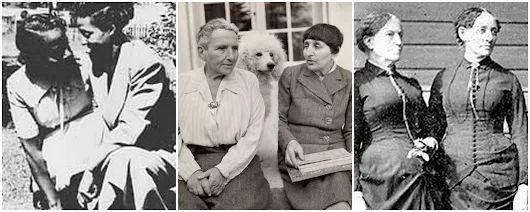...
When Dwight D. Eisenhower became U.S. President in January 1953, Dulles was appointed and confirmed as his Secretary of State. As Secretary of State, Dulles still carried out the "containment" policy of neutralizing the Taiwan Strait during the Korean War, which had been established by President Truman in the Treaty of Peace with Japan of 1951. Dulles also supervised the completion of the Japanese Peace Treaty, in which full independence was restored to Japan under United States terms.
As Secretary of State, Dulles concentrated on building up the North Atlantic Treaty Organization and forming other alliances (a phenomenon described as his "Pactomania") as part of his strategy of controlling Soviet expansion by threatening massive retaliation in the event of a war. In the 1950s, he worked alongside people in Vietnam, and others, to reduce French influence in Vietnam as well as asking the United States to attempt to cooperate with the French in the aid of strengthening Diem's Army. Over time Dulles concluded that it was time to "ease France out of Vietnam". In 1950 he also helped initiate the ANZUS Treaty for mutual protection with Australia and New Zealand.
Dulles strongly opposed communism, believing it was "Godless terrorism". One of his first major policy shifts towards a more aggressive position against communism occurred in March 1953, when Dulles supported Eisenhower's decision to direct the Central Intelligence Agency (CIA), then headed by his brother Allen Dulles, to draft plans to overthrow the Prime Minister Mohammed Mossadegh of Iran. This led directly to the coup d'état via Operation Ajax in support of Mohammad Reza Pahlavi, who became the Shah of Iran.
In 1954 during at the height of the Battle of Dien Bien Phu, Dulles hoped that American forces could attempt to help the beleaguered French army. Operation Vulture was planned; an aerial assault on the opposing communist Viet Minh siege positions. Eisenhower made American participation reliant on British support, but Foreign Secretary Sir Anthony Eden was opposed and Vulture was reluctantly cancelled. With Dien Bien Phu's fall to the communists, Dulles fell out with Eden. At the 1954 Geneva Conference which concerned the breakup of French Indochina he forbade any contact with the Chinese delegation, refusing to shake hands with Zhou Enlai, the lead Chinese negotiator. He subsequently left leaving the US to avoid direct association with the negotiations.
Later during 1954 Dulles became the architect of the Southeast Asia Treaty Organization (SEATO). The treaty, signed by representatives of Australia, Britain, France, New Zealand, Pakistan, the Philippines, Thailand and the United States, provided for collective action against aggression.
The same year Dulles participated in the instigation of a military coup by the Guatemalan army through the CIA, claiming that the democratically-elected President Jacobo Árbenz's government and the Guatemalan Revolution were veering toward communism. Dulles had previously represented the United Fruit Company as a lawyer, while his brother, CIA Director Allen Dulles, was on the company's board of directors. Thomas Dudley Cabot, former CEO of United Fruit, held positions of director of International Security Affairs in the State Department. John Moore Cabot, a brother of Thomas Dudley Cabot, was secretary of Inter-American Affairs during much of the coup planning in 1953 and 1954.
Dulles was named Time's Man of the Year for 1954.
Dulles was one of the pioneers of massive retaliation and brinkmanship. In an article written for Life magazine, Dulles defined his policy of brinkmanship: "The ability to get to the verge without getting into the war is the necessary art." Dulles' hard line alienated many leaders of nonaligned countries when on June 9, 1955, he argued in a speech that "neutrality has increasingly become obsolete and, except under very exceptional circumstances, it is an immoral and shortsighted conception." Throughout the 1950s Dulles was in frequent conflict with those non-aligned statesmen he deemed excessively sympathetic to Communism, including India's V.K. Krishna Menon.
In November 1956, Dulles strongly opposed the Anglo-French invasion of the Suez Canal zone in response to the Suez Crisis. During the most crucial days he was hospitalized after surgery and did not participate in Washington's decision-making. However, by 1958 Dulles had become an outspoken opponent of President Gamal Abdel Nasser of Egypt and prevented him from receiving arms from the United States. This policy allowed the Soviet Union to gain influence in Egypt, as it forced Nasser to turn to the Soviets for weapons.
Dulles served as the Chairman and Co-founder of the Commission on a Just and Durable Peace of the Federal Council of Churches of Christ in America (later the National Council of Churches), the Chairman of the Board for the Carnegie Endowment for International Peace, and a Trustee of the Rockefeller Foundation from 1935 to 1952. Dulles was also a founding member of Foreign Policy Association and Council of Foreign Relations.
https://en.wikipedia.org/wiki/John_Foster_Dulles .



